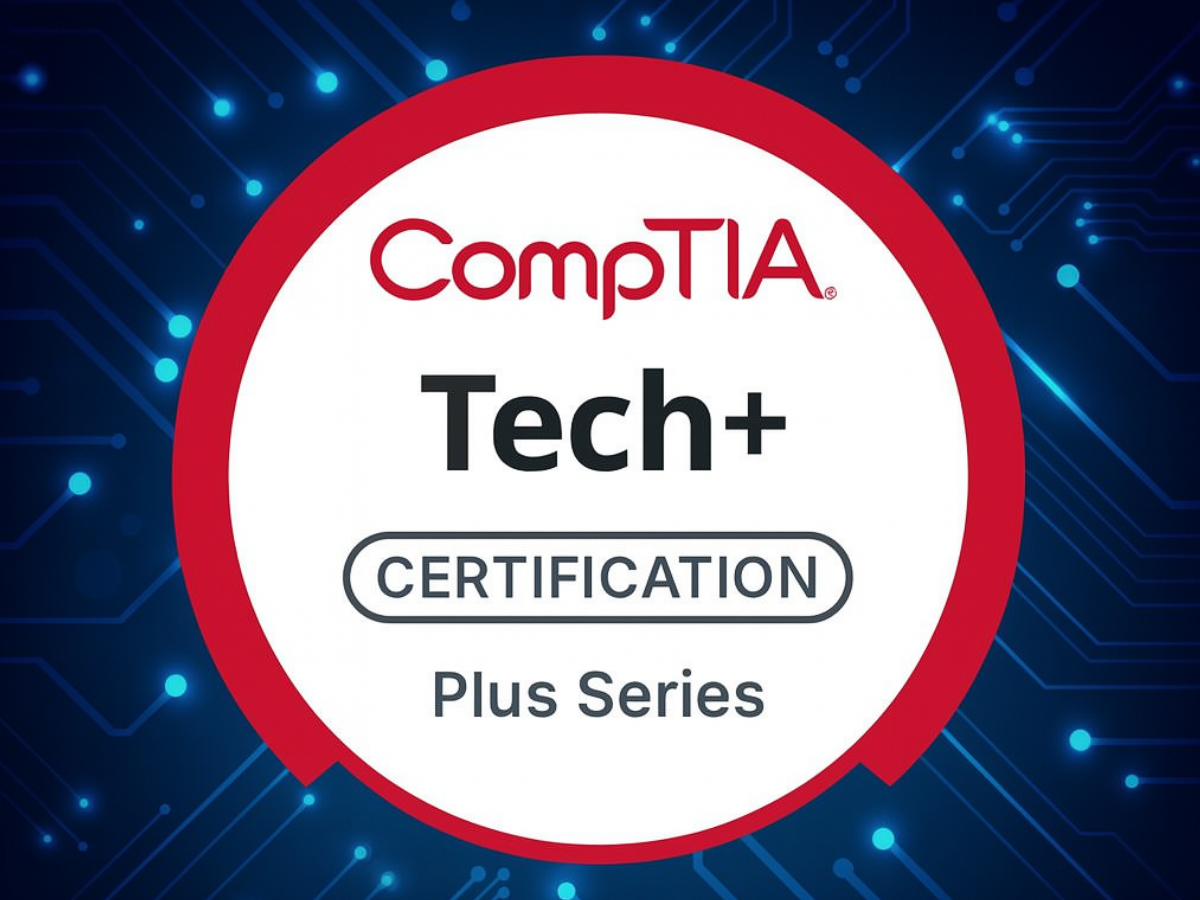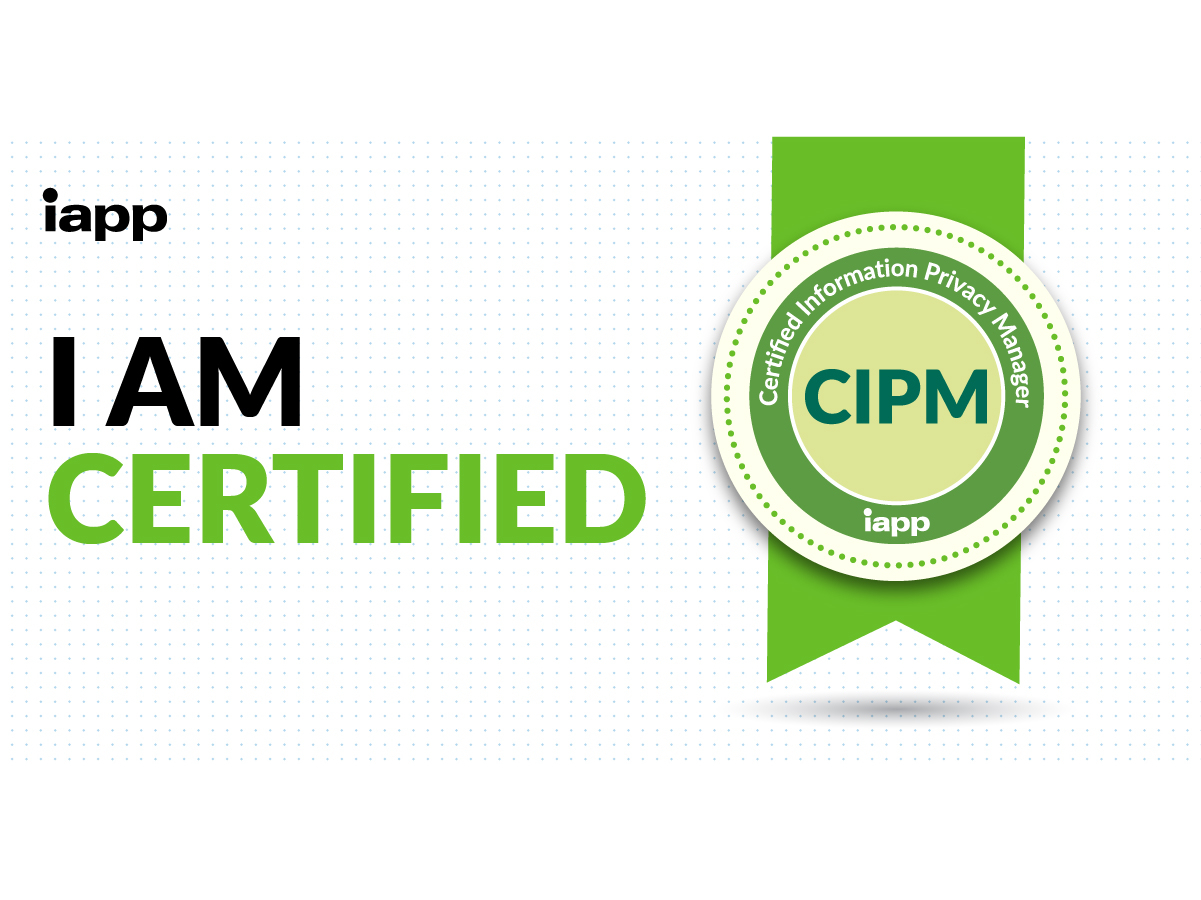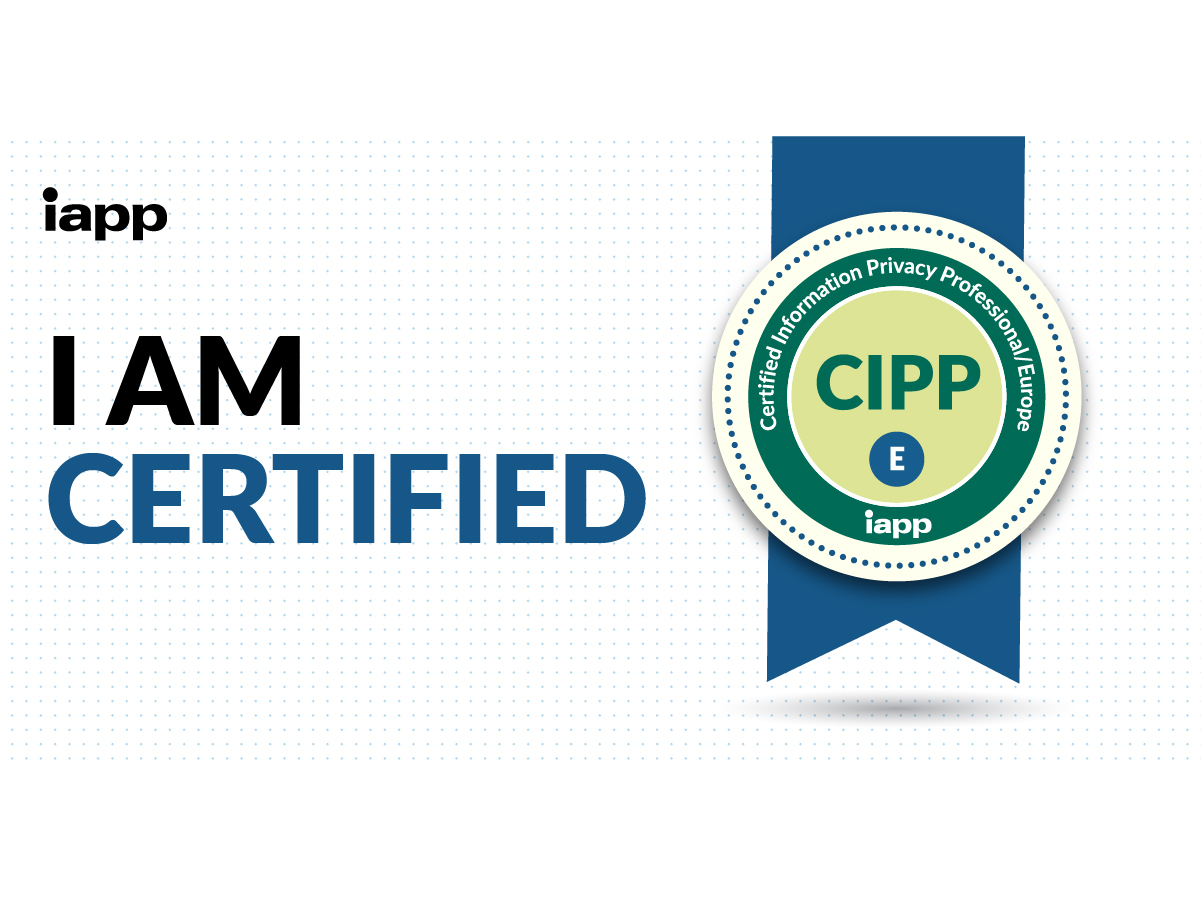Table of Contents
As you might be able to tell, I’m a certification nerd. I love learning, and one of my all-time favourite things about being in “tech” is just how easy it is to expand your knowledge and build upon your fundamental understanding to work in all sorts of fascinating areas. Tech+ is CompTIA’s “replacement” for IT Fundamentals (which will sunset in a few days) - but, in my opinion as a CISSP, it’s much more than that.
Yes, of course I passed, but wouldn’t it be really worrying if I didn’t? (So if that’s what you came for, you can go now!) More importantly (and hopefully of some use), this is my honest review of the certification content, syllabus and exam and why it’s one you should be paying attention to.
What is CompTIA Tech+ and why is it different?
CompTIA Tech+ is, according to CompTIA
The essential certification for anyone exploring a career in tech. It provides you with the foundational knowledge a hands-on skills needed to navigate today’s digital world, giving you the confidence to take the first step toward a tech-related career. CompTIA Tech+ focuses on practical, real-world skills that help you understandd core tech concepts, troubleshoot basic issues, and build a strong foundation for future learning and growth in the tech industry.
Overall, that’s not a bad description, but I can’t help but feel that CompTIA buried the lead a little here - Tech+ is, in my view, more “useful” than most other IT certifications - no, not in depth, but in breadth and applicability, it really shines. CBT nuggets hit the nail on the head in a recent blog, when they noted that:
The CompTIA ITF+ was for individuals with little or no IT knowledge and certified that they had a basic understanding of common IT concepts. On the other hand, the new CompTIA Tech+ is intended for those pursuing a career in IT, or for individuals who need a solid technical foundation for their ‘tech-adjacent’ work.
CBTNuggets - Emphasis mine.
This is what makes Tech+ a bit different - arguably, it’s the first IT certification that appeals to, and adds value for, people who have no intention of pursuing further certifications or advancing in IT. While it certainly does make for an excellent first certification for those getting into a technology field, changing careers or just wanting to certify after some time in the sector - it’s also an excellent knowledgebase for those tech-adjacent folks who need to know something about the technology they rely on to perform their everyday works but not everything about how a system gets things done.
Look at the workforce today, and you’ll see that CompTIA are on to a winner here - even though CBTNuggets seems to have been the first to actually point it out! It’s no longer the case that “many” jobs are now tech-adjacent; rather most roles now rely on technology to facilitate their work. The recent surge in AI has only made this more apparent, although, for those of us concerned with preventing security incidents and data breaches, it’s also highlighted why better user training is desperately needed.
For example, let’s say you’re a receptionist - not exactly a “tech” career, but without doubt a role in which you’ll now need to be “tech-savvy”. Do you really need to know how encryption works, how to implement S/MIME or how to triage malware? Probably not. But do you need to know how to spot a phishing email, how to check if a connection to a website is secure or why two-factor authentication is a must-have? Almost certainly. Would being able to tell the difference between an IP address and a MAC address, or being able to check basic firewall settings, be a huge bonus? Without doubt. This is where Tech+ starts to offer a real edge for “tech-adjacent” workers who are willing to put a bit of effort into their education - there’s no question that in 2025, a “tech competent” worker is worth more than a Luddite, and in the face of pressure to reduce the human workforce Tech+ might just be the tool that keeps you relevant.
From a security management perspective, too, Tech+ seems like an excellent way forward. For many organisations, pitching their Cybersecurity awareness and education efforts at the right level is a major stumbling block. Awareness, broadly speaking, is aimed at drawing workers’ attention to issues such as phishing and malware, which can be major sources of risk. Education is training which is more targeted and specific - not necessarily certification training, but usually practical, hands-on stuff for people who play a more traditional “IT” role. Often, a relevant certification (Such as Security+) does provide an ideal “drop-in” solution, but ITF+ (as good as it was) didn’t quite perform the same function for those who just needed awareness-level training.
Let’s be honest, too - a lot of “awareness” training does boil down to fairly general reminders about not clicking links or using strong passwords. These are important, but after a while, they’re not exactly motivating. Gamification and various incentive programs have all been utilised with various degrees of success to boost engagement, but I’d venture to guess that giving employees access to Tech+, with the chance to earn a genuine, valid for life certification, which also raises their own employability, might be an excellent way to met awareness training targets, and perhaps even inspire a handful to study further and help address technical skills gaps further up the chain.
And this, broadly speaking, is why I love Tech+ - it’s not just a certification for those wanting to get into tech, it’s a certification for those who don’t want to get into tech (but realise these things make them valuable) and for those who are responsible for trying to upskill their workforce and reduce risk. What’s not to love?
Certification Content
Tech+ still covers pretty much everything ITF+ covered, with perhaps a little less focus on some technical processes; these slight concessions make room for content on new and emerging technologies. At this level, I think this is the right move and, again, gives the certification more appeal to its ideal market. Some real thought has gone into this update, and for me, it shows.
For example, the ITF+ objective “Given a scenario, install, configure and secure a basic wireless network” has been slightly simplified in Tech+, with the closest new objective being “Explain the basic capabilities of a small wireless network”. Does your average “tech-adjacent” worker need to install or configure a wireless network? Almost certainly not, but is it really helpful for them to understand the basics of what a wireless network is, how it works and why the Wi-Fi needs a password? I’d say yes. After all, if you’d like to learn more about how to configure a wireless network (and you might, once you know what it can do) there’s always Network+.
New to Tech+ and highly relevant today are objectives like “2.6 - Compare and contrast virtualisation and cloud technologies” or “3.5 - Identify common uses of artificial intelligence (AI)” which, in my experience, align very well with the root causes of many security incidents happening at the moment.
All told, the syllabus aims to assist certification takers with:
- Understanding and managing IT infrastructure, including hardware and networks, to ensure robust system performance.
- Applying software applications and development principles to solve problems and enhance organisational efficiency.
- Implementing cybersecurity measures to help safeguard information against threats and vulnerabilities.
- Embracing emerging technologies such as AI and IoT, understanding their impact and how they’re shaping the future of IT.
- Developing a foundation in data management and database fundamentals, crucial for data-driven decision-making.
Solid - but again I’m struck by how this reads just as well as a list of competencies for an entry-level IT position, internship or training program as it does for a bookkeeper, legal secretary or salesperson. All of these are desirable traits which can certainly set someone up for a career in technology, but they also serve as major competency markers for those who utilise IT to get other work done. Wouldn’t you prefer to hire a salesperson who’s “Embracing emerging technologies such as AI and IoT” or a receptionist who’s capable of “Implementing cybersecurity measures to help safeguard information against threats and vulnerabilities” - I know I would!
Exam
Like all CompTIA exams, scheduling is through Pearson Vue’s online service, with both in-person and online exam options available. I took Tech+ via Pearson’s online OnVUE platform and had a typical experience, which would be familiar to anyone who has taken a certification before.
The exam itself felt well-balanced based on the stated objectives, the questions were well-worded and fair, and while there were a couple of “tricky” ones, I honestly feel that someone who had invested the time to study the material should have no issue in achieving a pass.
As with the syllabus itself, it seems that CompTIA have done a solid job of pitching the exam at the right level for the target audience. Unlike many CompTIA exams, there are no “performance-based” (aka. “simulation”) questions, which means the whole process is essentially a straightforward 60-question multiple-choice affair.
While few people enjoy taking exams, this certainly wasn’t an unpleasant process and it’s one that I think most people will find extremely manageable.
Should You Take CompTIA Tech+
My answer to this, having just proudly added this certification to my list, is an unequivocal yes. To round up the blog, here’s why:
“I’m interested in a career in technology” - Tech+ is an excellent start. Neither the exam nor the training is going to break the bank, and you can’t go wrong by getting a certification which is developed and offered by the largest vendor-neutral industry organisation. Don’t start with A+ - take Tech+ first. Worst case, it’s a very affordable opportunity to practice studying for and taking a certification exam. Depending on how much time you have to dedicate to your study, getting your A+ might take 6 months to a year - get your Tech+ first and start being recognised for your efforts and ambition.
“I work with computers, but I don’t understand them” - Tech+ is going to move you from confused and underconfident to knowledgeable and empowered. No, it won’t turn you into a “tech nerd”, but it will help you to understand how the most critical tool you use actually functions. More importantly, Tech+ allows you to prove that you put the effort into learning and makes you more valuable to your current employer or a new one. Don’t be the applicant with an identical CV - be the one with a verifiable certification that proves you’re capable of more.
“I’m a Security / Data protection manager” - Go and take Tech+ yourself (like I just did), and see if you feel the same way as I do. If so, I’d strongly consider making this at least an optional aspect of your security awareness and education efforts. The certification is extremely affordable at $125 (Correct at time of writing) with Certification and Training bundles direct from CompTIA at $210 retail. There’s also a “Site License” option, which includes exam vouchers and training material for $5k / 50 students. At $100 per student, that’s an extremely cost-efficient way to deliver measurable outcomes for cybersecurity awareness and staff training goals.
“I’m a university student” - If you’re a student at a registered university, I’d strongly recommend you take a look at Tech+, regardless of your field of study. Significant student discounts on certifications and training are available through the CompTIA education store (academic email address required), which makes this a huge employability win for an exceptionally low price.





Start the conversation